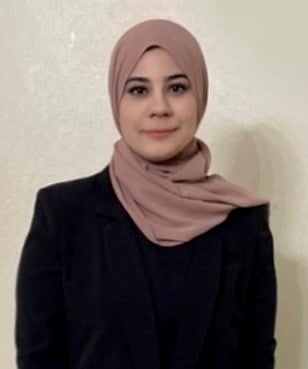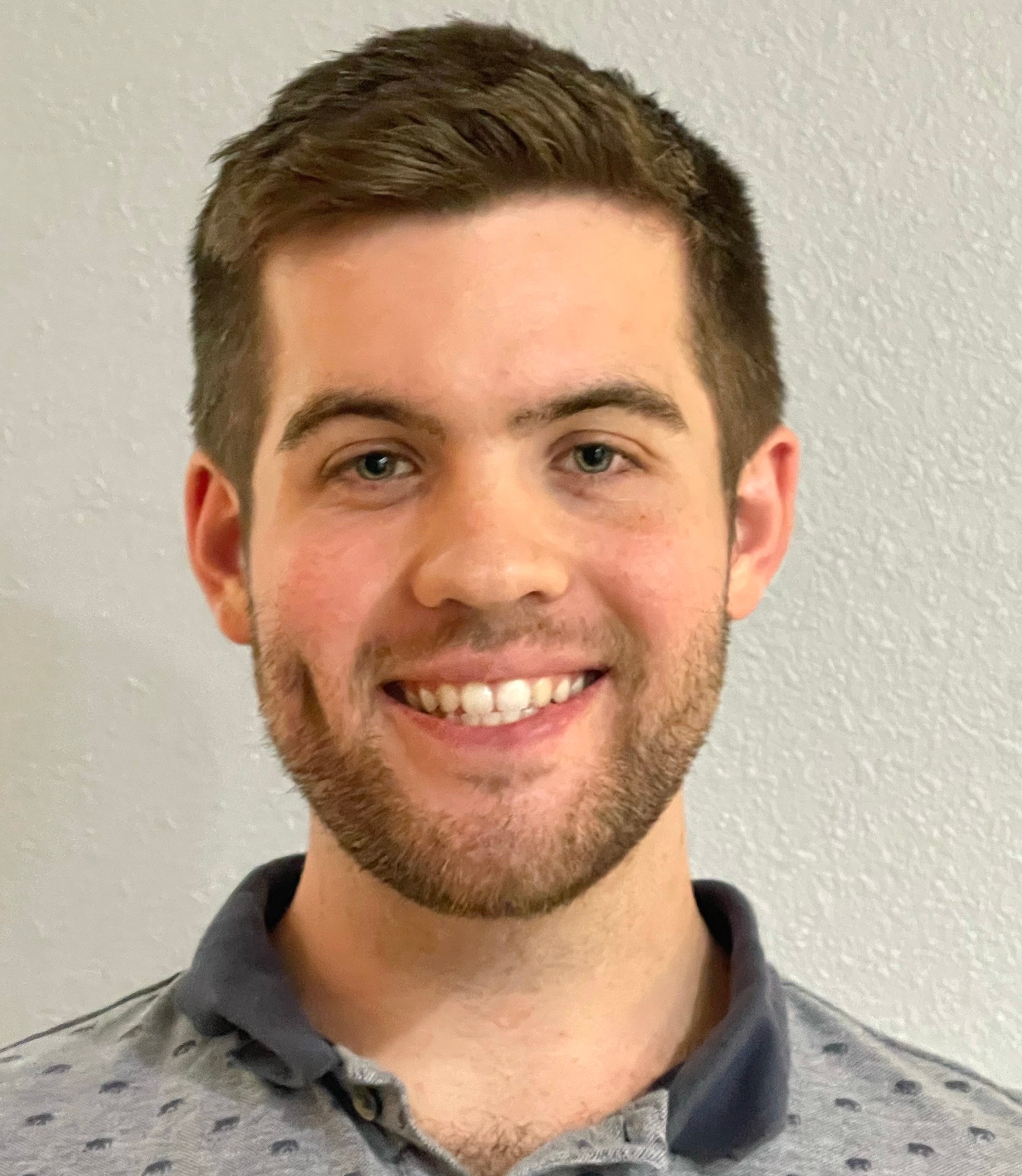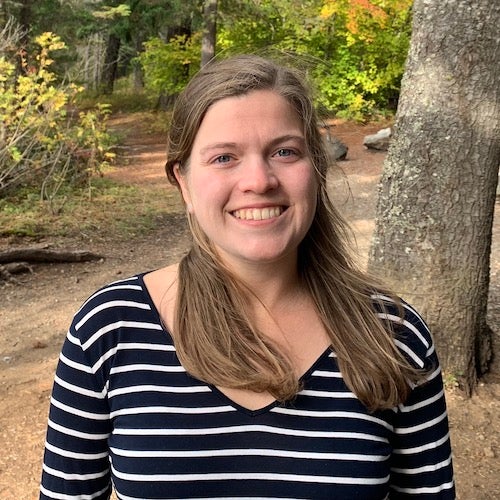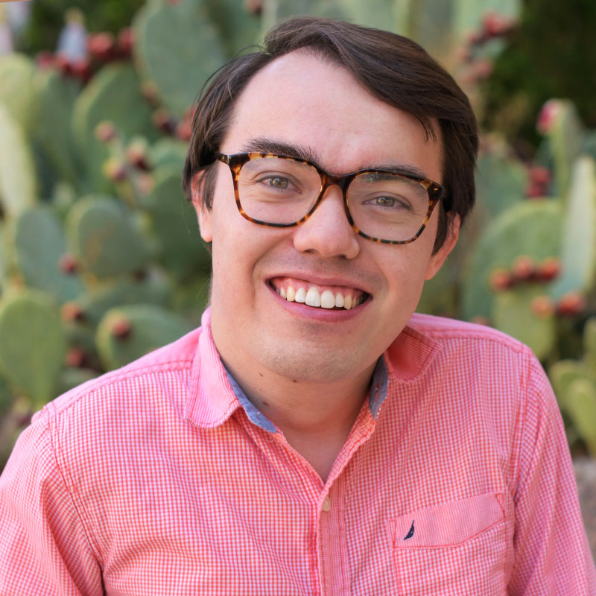Life sciences graduate students awarded NSF fellowships

From left to right: Logan Gin, Carly Busch, Tasneem Fayek Mohammed, Nicholas Wiesenthal and Jynx Pigart are all ASU School of Life Sciences graduate students who have been named Graduate Research Fellows by the National Science Foundation.
In recognition of research accomplishments and plans for graduate work, three Arizona State University School of Life Sciences students have been named 2022 Graduate Research Fellows by the National Science Foundation.
Tasneem Fayek Mohammed, Jynx Pigart and Nicholas Wiesenthal were all selected for this distinguished award supporting early career graduate students.
The NSF Graduate Research Fellowship Program supports outstanding graduate students who are pursuing research-based masters and doctoral degrees in science, technology, engineering and mathematics disciplines or in STEM education.
Fellows receive a stipend of $34,000 annually for three years, along with a $12,000 cost-of-education allowance for tuition and fees, which allows students to focus on progressing their own research projects rather than teaching or working on research projects on behalf of their adviser.
All three of the award winners are current lab members of School of Life Sciences Assistant Professor Katelyn Cooper, who was also recently awarded the NSF CAREER award, as well as multiple other funded projects.
In addition to this year’s three winners, current lab member and PhD candidate Carly Busch was awarded the GRFP in 2020, and recent PhD graduate Logan Gin received the award in 2017.
“This means that all five PhD students who Dr. Cooper has mentored (or will mentor) have had the NSF GRFP — this is pretty fantastic odds for any faculty member, and even more impressive for an early career faculty member!” said Professor Sara Brownell, director of the Research for Inclusive STEM Education (RISE) Center. “Katey Cooper's research program is helping to establish SOLS and ASU as a hub for biology education research, and the caliber of the students is elevating the quality of this program.”
The Cooper Biology Education Research Lab focuses on creating a more diverse and inclusive scientific community through better understanding how mental health affects students in biology learning environments.
“I am truly beside myself, I am so impressed with and grateful to NSF for funding students who proposed research projects focused on undergraduate and graduate mental health,” said Cooper about her students' GRFP awards.
“It’s just such an example to students to do the research that you think is important,” she said. “You should dream big and think deeply about problems that are really hard, even if others think you should avoid those topics.”
2022 winners
Tasneem Fayek Mohammed will be graduating this spring with her master's degree in biology.
Tasneem Fayek Mohammed
Tasneem Fayek Mohammed will be graduating this spring with her master's degree in biology. An ASU student through and through, she also received her bachelor’s degree in biological sciences.
Her current research focuses on biology and pre-med student experience with stress and depression, examining underlying factors and exploring ways to create more inclusive courses.
Originally from Palestine, Mohammed’s personal experience navigating scientific graduate research instilled a deep interest in the intersection of personal culture and academia.
“Reconciling these cultural disconnects left me feeling empowered, but I realized this is not the case for all students, and that such disconnects often discourage students from becoming scientists,” she said. “As I started to conduct more mental-health related research in my master’s, I realized that combining these two passions could have a profound impact on how we think about the challenges that students with different cultural backgrounds face in higher education and what we can do to create a more inclusive scientific community.”
After graduating, she will continue her studies in ASU’s Biology and Society PhD program, where she hopes to build further on her research as she works toward her goal of becoming a tenured professor.
“During my PhD, I will embark on a new area of research aimed at furthering our understanding of the intersection of mental health and science education for students with different cultural backgrounds,” she said. “I hope that I will establish readily accessible resources and services for underrepresented students, and make a global impact by fostering inclusive science environments.”
Jynx Pigart is an incoming PhD student in the School of Life Sciences Biology Education program.
Jynx Pigart
Jynx Pigart is an incoming PhD student in the School of Life Sciences Biology Education program.
“Being a recipient of the NSF-GRFP, and it being awarded prior to even starting graduate school at ASU, has been incredibly validating to my internal commitment to make the most out of my experience as a student in higher education,” she said.
Pigart plans to study student mental health in learning environments, with a special interest in groups that have been historically under-supported in STEM, including LGBTQ-plus and low socioeconomic status populations.
Pigart cemented her interest in biology, teaching and student mental health during her undergraduate studies. She received her bachelor's degrees in biology and psychology from East Carolina University, where she served as an undergraduate teaching assistant in introductory biology labs for three years, and completed her senior thesis on undergraduate student mental health and social support in virtual environments. As she started applying for graduate school, she considered programs specializing in her experiences and interests as separate topics before discovering Cooper’s lab.
“There is no other lab in the country that intersects all these interests so succinctly the way Dr. Katey Cooper’s lab achieves,” she said. “I don’t think I would have had the opportunity to have the research interest that I have chosen if it wasn’t for the unique opportunities at ASU.
“I’m looking forward to the future!”
Nicholas Wiesenthal is a first-year PhD student in the Biology and Society program.
Nicholas Wiesenthal
Nicholas Wiesenthal is a first-year PhD student in the Biology and Society program.
“As a biology education researcher, my current research focuses on exploring graduate student mental health in research and learning spaces and seeing how STEM graduate research and teaching can exacerbate or alleviate one's depression and/or anxiety disorders,” he said.
Last year, he co-authored a paper in CBE-Life Sciences Education, a free online quarterly journal published by the American Society for Cell Biology. In a qualitative interview study of 50 life sciences PhD students from two different institutions, Wiesenthal and his colleagues in Cooper’s lab identified four aspects of graduate school that influenced student depression: the amount of structure in teaching and research; positive and negative reinforcement; success and failure; and social support and isolation.
He is currently working on a similar study examining both graduate student depression and anxiety disorders to see how generalizable the findings are with various demographic groups nationwide.
“With the growing concerns of a mental health crisis in higher education, I have become really passionate about finding the underlying causes for the problems found in graduate programs that can exacerbate one's mental health,” he said. “By doing this kind of work, it can give a spotlight to graduate student mental health in academia and hopefully lead to changes that can help students with depression and/or anxiety disorders succeed as graduate students.”
Previous winners
Carly Busch is a second-year PhD student in the School of Life Sciences Biology and Society program.
Carly Busch
Carly Busch is a second-year PhD student in the School of Life Sciences Biology and Society program and was awarded the NSF Graduate Research Fellowship in 2020 as she started at ASU.
Originally from Houston, Texas, Busch received her Bachelor of Arts in biology at Whitman College before coming to ASU to work in Cooper’s lab.
Her current research focuses on biology education.
“A few years after graduating, I learned that there is an entire field devoted to exploring research questions related to biology education and knew that it would be the perfect combination of teaching and conducting impactful research,” she said.
“I am currently working to assess the impact on STEM undergraduates from an instructor revealing their LGBTQ-plus identity during class,” she said.
Results of her research suggest that openness from instructors regarding their LGBTQ-plus identity has a positive impact on students, regardless of how they identify. Students report feeling better able to approach and relate to their instructor, and an increased sense of belonging in the field of science overall.
Logan Gin graduated with his doctorate in biology and society in fall 2021.
Logan Gin
Logan Gin graduated with his doctorate in biology and society in fall 2021 and was awarded the NSF Graduate Research Fellowship in 2017.
He worked closely with Brownell and Cooper to complete research on how science communities can create more inclusive environments for students with disabilities, coauthoring a number of research articles on the topic.
His research culminated in a dissertation that examined the challenges students with disabilities encounter in evolving higher education learning environments. By presenting his findings from a number of studies, Gin argued that institutions need to consider modifying student accommodations to better support students with disabilities.
Gin has now accepted a position as assistant director of STEM education at Brown University’s Sheridan Center for Teaching and Learning.
More Science and technology

ASU-led space telescope is ready to fly
The Star Planet Activity Research CubeSat, or SPARCS, a small space telescope that will monitor the flares and sunspot activity…

ASU at the heart of the state's revitalized microelectronics industry
A stronger local economy, more reliable technology, and a future where our computers and devices do the impossible: that’s the…

Breakthrough copper alloy achieves unprecedented high-temperature performance
A team of researchers from Arizona State University, the U.S. Army Research Laboratory, Lehigh University and Louisiana State…






